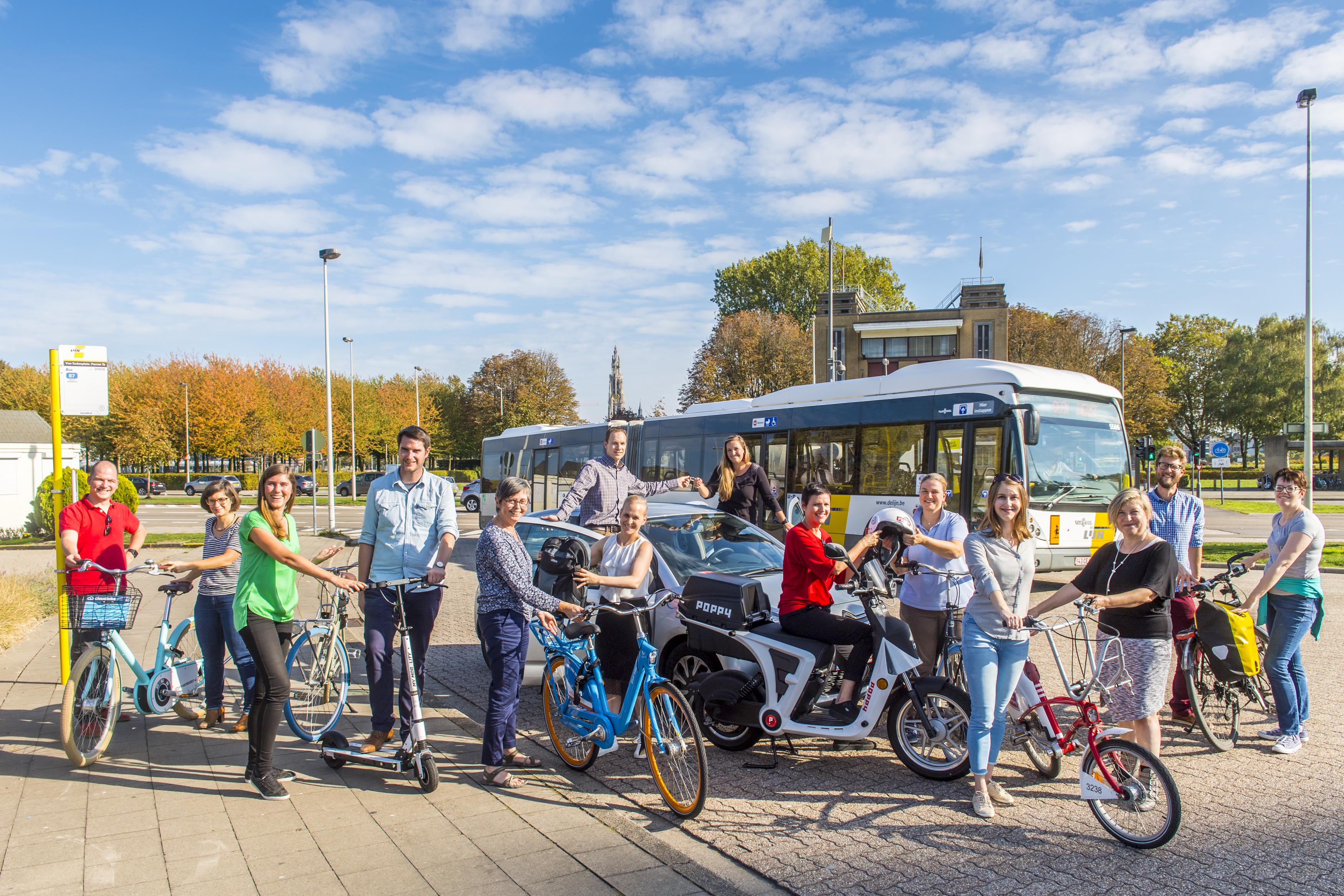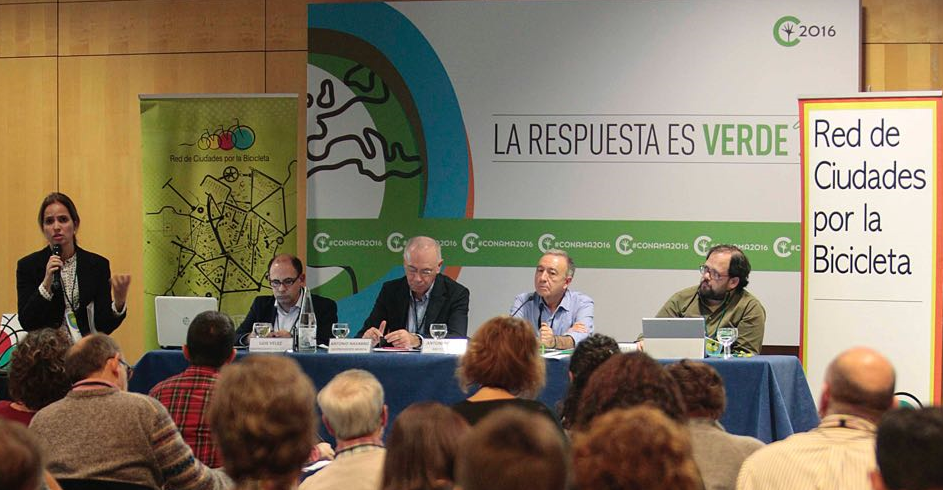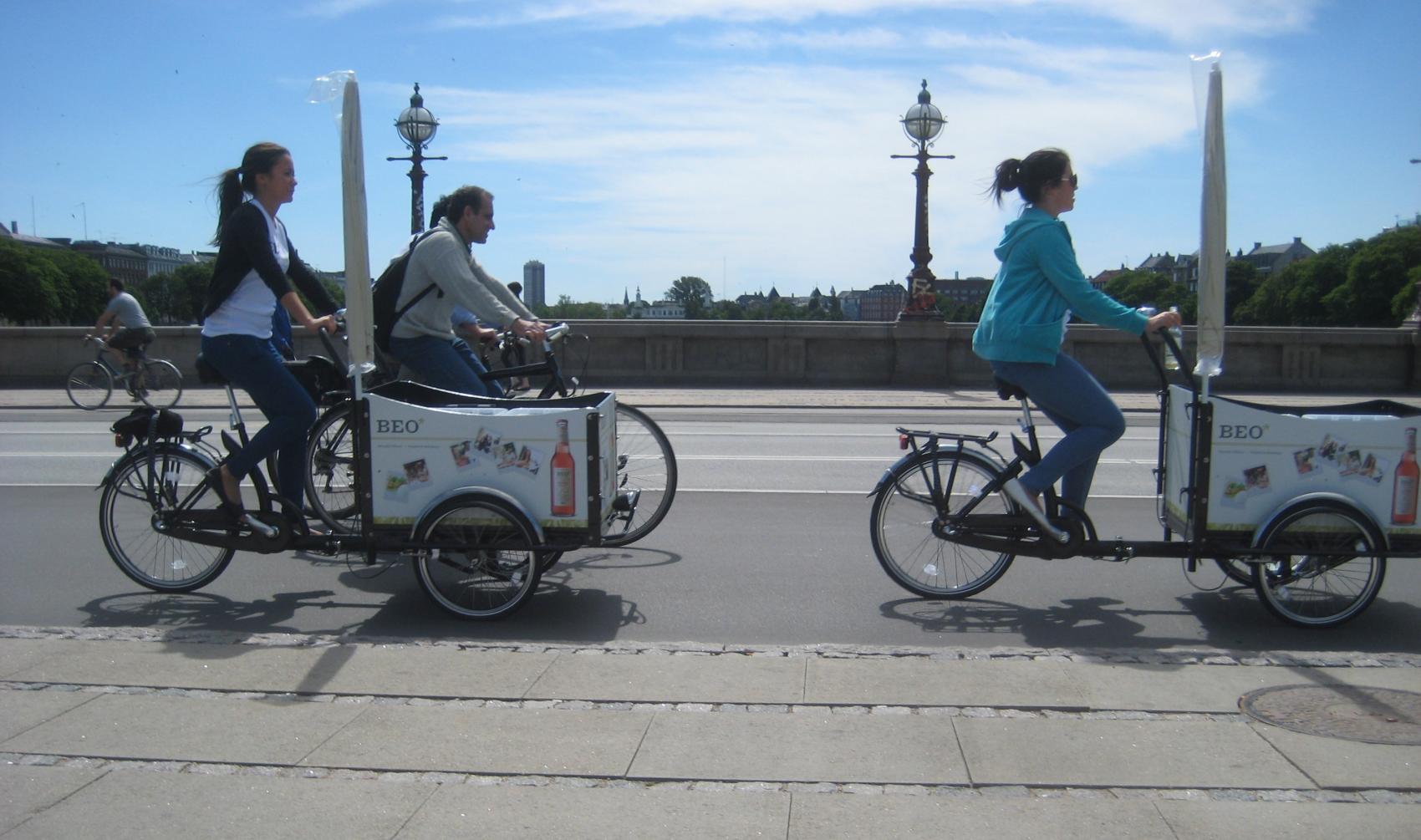
2018 End of the Year Highlights: Cities & Regions for Cyclists
In 2018, our Cities & Regions for Cyclists network grew considerably, and members were actively involved in the development of national cycling strategies, new mobility solutions, and new innovative cycling projects. Here is a look back at the highlights of the past six months and an overview of the interesting activities on the programme for 2019. A recap of the first half year can be found here.
As autumn kicked in across Europe, the Government of Navarre joined the CRC network, thereby asserting its commitment to advance cycling infrastructure, bicycle tourism, and the sustainable development of rural areas. This addition marked a great year for the CRC network with 8 new members joining our global community of cities and regions cooperating to promote cycling and the exchange valuable knowledge: Valencia (ES), Poznan (PL), Gipuzkoa (San Sebastian, ES), Lemoa (ES), the Province of South Holland (NL), Ljubljana (SL), Bilbao (ES), and Navarre (ES).
2018 was also the year in which we launched the #VisionaryCities Series designed to stimulate the exchange of best practices from visionary local leaders within the network. Adding to the contributions by the Serbian City Kruševac and the City of Copenhagen earlier this year, the City of Antwerp contributed with a success story on Mobility as a Service. The “Smart Ways to Antwerp” project thereby feeds into the growing trend observed by the ECF that cities are increasingly taking back control when it comes to new mobility solutions.
 In November, the #VisionaryCities Series further expanded its compilation of best practices with a story from Red de Ciudades por la Bicicleta (RCxB). In response to the EU Cycling Strategy’s recommendation to pursue national cycling strategies, RCxB has collaborated with a wide set of stakeholders, including ConBici, on the development of a Spanish Bicycle Strategic Plan coming up in 2019.
In November, the #VisionaryCities Series further expanded its compilation of best practices with a story from Red de Ciudades por la Bicicleta (RCxB). In response to the EU Cycling Strategy’s recommendation to pursue national cycling strategies, RCxB has collaborated with a wide set of stakeholders, including ConBici, on the development of a Spanish Bicycle Strategic Plan coming up in 2019.
On December 13, our new member, Gipuzkoa, presented an award on sustainable mobility to Bizikume and Kalapie, for their initiative to promote cycling among women.
Throughout the year, many of our CRC members also joined one of our HEAT webinars, in which ECF’s health expert, Randy Rzewnicki, and numerous special guests guided participants on how to calculate the value of walking and cycling in their city or region. The success continues next year, starting with a webinar for advanced users on January 15th 10-11 (CET) eager to delve into the new HEAT modules for Air Pollution, Carbon and Crashes. Register for the event here.
New projects were launched
 As the second half of 2018 took off, so did the new EU-funded innovation project City Changer Cargo Bike (CCCB). In September, over 20 partner cities, including CRC member San Sebastian, met with research institutes, NGOs, and industry in Copenhagen to discuss the first steps of this new project. Building on the successes of previous projects (CycleLogistics and CycleLogistics ahead), CCCB will develop and implement schemes to prove that the introduction and application of cargo bikes can be a true game changer for urban mobility. The ultimate goal is to increase and accelerate the take up of cargo bikes and thus contribute to improve the image and general levels of cycling, as well as to enhance air quality, safety levels and liveability of urban areas.
As the second half of 2018 took off, so did the new EU-funded innovation project City Changer Cargo Bike (CCCB). In September, over 20 partner cities, including CRC member San Sebastian, met with research institutes, NGOs, and industry in Copenhagen to discuss the first steps of this new project. Building on the successes of previous projects (CycleLogistics and CycleLogistics ahead), CCCB will develop and implement schemes to prove that the introduction and application of cargo bikes can be a true game changer for urban mobility. The ultimate goal is to increase and accelerate the take up of cargo bikes and thus contribute to improve the image and general levels of cycling, as well as to enhance air quality, safety levels and liveability of urban areas.
Another project that saw the day of light in 2018 was the Multi-modal Optimisation for Road-space in Europe (MORE). The primary aim of MORE is to develop procedures for the comprehensive co-design of busy urban main road corridors feeding the European TEN-T road network. By doing so, it aims to accommodate current and future multi-modal and multi-functional requirements and tackle urban challenges such as congestion, sustainability, noise, air pollution, and safety.
Apart from the take-off of these two exciting projects, the autumn also presented great new funding opportunities for cities interested in cycling projects. The Urban Innovative Actions (UIA) invited urban authorities to develop and submit proposals, which address urban challenges by testing novel and unproven solutions. For projects located in England, France, the Netherlands, and Belgium, Interreg 2 Seas likewise looked for proposals on innovative low-carbon technologies in the transport sector. Sounds like something for your city or region? Then you still got a chance to submit a proposal before the calls close on December 21 (Interreg 2 Seas) and January 31 (UIA).
What’s on the Agenda for 2019?
A new year also presents a chance to plan for what lies ahead:
- Advanced HEAT 4 Webinar (15 January)
- Network meeting in spring
- Urban Future Global Conference in Oslo (22-24 May)
- Transport Connectivity for Regional Integration in Leipzig (22-24 May)
- International Conference on Urban Transport and the Environment in Aveiro (25-27 June)
- Velo-city in Dublin (25-28 June)
- Autonomy Urban Mobility Summit in Paris (16-17 October)
Regions:
Network/Project Involved:
Contact the author
Recent news!
Upcoming events
Contact Us
Avenue des Arts, 7-8
Postal address: Rue de la Charité, 22
1210 Brussels, Belgium









